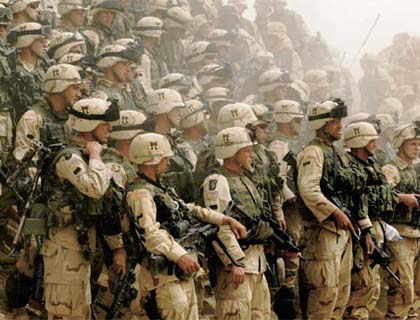The announcement of President Obama about the with drawal of US troops from Afghanistan created a lot of guesswork in Kabul. As no specific military, economic and political progress has taken roots during the last ten years presence of international community, the country will remain vulnerable to insurgent groups before and after their withdrawal in 2014. This premature disengagement will leave profound consequences for the future of Afghanistan. Taliban have not been defeated and Al-Qaeda is still there. Afghan citizens, including parliamentarians and military establishment are bewildered that foreign forces are leaving with fighting still raging.
The US and its allies failed to adequately resource the Afghan campaign. Improper Military spending and increase in the number of irregular warriors led to huge waste, inflation and corruption. This irregular spending increased the cost of war and damaged the reputation of the Afghan Government too. Millions of Afghans continues to suffer from shortages of housing, clean water, electricity, medical care, and jobs.
Afghan National Army still has many weaknesses, fully dependent on embedded trainers and regretfully, still, not able to effectively tackle insurgency in the country. Warlords and mafia groups started reorganization of their forces while in the government circles; American friends are mournful and say they are being left helpless. Interestingly, President Obama in his announcement did not include any long-term commitment like that offered to Japan and Korea decades ago. This created more distrust about the future of US-Afghan friendship.
Afghanistan already troubled by major societal and economic problems, especially, vulnerable to additional challenges posed by the probable influx of arms from the neighboring countries. Over the last ten years due to insufficient investment poverty has become more concerning as the rate of unemployment is rapidly rising. As the country has become known as a guaranteed stock of sophisticated arms and drug for war criminals and Taliban, the cloud of civil war are re-appearing within the Afghan frontiers with a heavy rain of bullets. The vast majority of Afghan arms are going into the streets of black market. The Afghan poor stockpile security and mismanagement has made arms depots attractive to smugglers and vulnerable to loss. Weapons of these depots are secretly going into the hands of smugglers and end up in the hands of Pakistani and Afghani Taliban groups.
In many occasions, arms and ammunition have been stolen or looted in various provinces of the country or Afghan police and National Army soldiers sold these weapons for cash. In Afghanistan, as army personnel are not properly paid for their services, they have no option to cooperate with insurgents for cash and supply them with weapons in exchange of money.
There are documented cases of Afghan soldiers selling weapons to Taliban fighters. Not only the smuggling of weapons becomes a profitable business in Afghanistan, the trafficking of drugs, timber, diamonds and even the smuggling of human beings is a popular trade. The militarization of crime in Afghanistan has become a threat not only to the state but also put in danger the security establishment of the country as well.
Having streamlined their business, Afghan arms traffickers mostly rely on various arm smuggling networks in Tajikistan, Iran, Pakistan and black markets in the region. In some provinces of the country, weapons are being bartered for hostages and heroin. Many Afghans ask who are these arms smugglers and from where they operate? The answer is clear that during the Soviet intervention, international community and Pakistan utilized private arms brokers to facilitate Afghans in their struggle to defeat USSR. These arms smugglers, however, deeply involved even after the Cold War ended, and the arms pipelines they had built remained operational to this day.
The horses of war criminals, drug mafia and private contractor are being prepared for a crucial race in the coming civil war that will drag Afghanistan back into fifteenth century ignorance. After the withdrawal of international coalition from Afghanistan, the country might slide back into war and renewed turmoil. The business of kidnapping is in progress and every group want to collect a lot of money for financing their militarization process. Lists of businessmen, big shopkeepers, plazas owner, jewelers and landlords have reached the headquarters of criminal mafia groups. The root of all evils in Afghanistan is the 'worse security' that hampers all sorts of social, political and economic developments.
Strong Political actors have already started visiting the capitals of neighboring states to share their concerns for the coming race in Afghanistan. Countries, those associated with SCO have their own agendas. In Islamabad these days, Afghan tribal and political players booked cool rooms in luxury hotels, visiting bureaucrats, military generals and clerics for joining their race for political power in near future.
Islamabad has tired now because neither stability comes to Afghanistan nor Americans want to leave Pakistan alone. In June 2011, General Kiyani unwillingly told European delegation that: "Pakistan wants a stable Afghanistan but not at the cost of Pakistan," ignoring strategic depth he said that Islamabad wants to remain relevant in any peace initiative and is unlikely to accept a solution that would undermine its strategic interests.
The main problem in Afghanistan is money, if you have money this would amount to an open invitation to kidnappers in the current climate. Businessmen in the country have sent their children and families to UK and U.S and they are obliged to stay behind because of their business. Police in Afghanistan accept that there has been an increase in kidnappings for ransom while business community is naturally concerned for their security. Justice system in the country has collapsed or infected with corruption and traditional politics. All institutions are corrupt; there is no punishment for influential criminals. Criminal culture, insecurity, and the Afghan Government's inability to extend rule of law to all parts of the country pose challenges to future economic growth.

